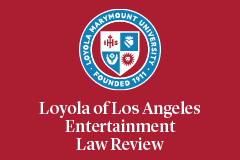Abstract
Street performers and artists who engage in expressive activity in traditional public fora are often adversely impacted by the enforcement of vendor licensing laws. Cited, arrested, or negatively impacted in other ways for selling their goods or services, street performers and artists have brought First Amendment challenges to the enforcement of these laws against them. The Ninth Circuit’s recent opinion in Santopietro v. Howelland the Second Circuit’s opinion in Bery v. City of New York demonstrate how courts’ varied approaches to these challenges have led to inconsistent results.
This Comment first discusses why and how local governments should directly address the problems vendor licensing laws are aimed at curing, but in a manner that does not negatively impact the valuable expressive activity of street performers. This Comment then critiques the Ninth Circuit’s approach to the First Amendment issue in Santopietro, primarily by comparison with the Second Circuit’s approach in Bery, and concludes that the Ninth Circuit improperly denied the street performer’s motion for summary judgment on that issue.
Recommended Citation
Stephen Touchton,
Santopietro v. Howell's Misstep and the Need to Correct the Preventable Adverse Impact of Vendor Licensing Laws on Street Performers' Expressive Conduct,
39 Loy. L.A. Ent. L. Rev. 43
(2018).
Available at: https://digitalcommons.lmu.edu/elr/vol39/iss1/2


